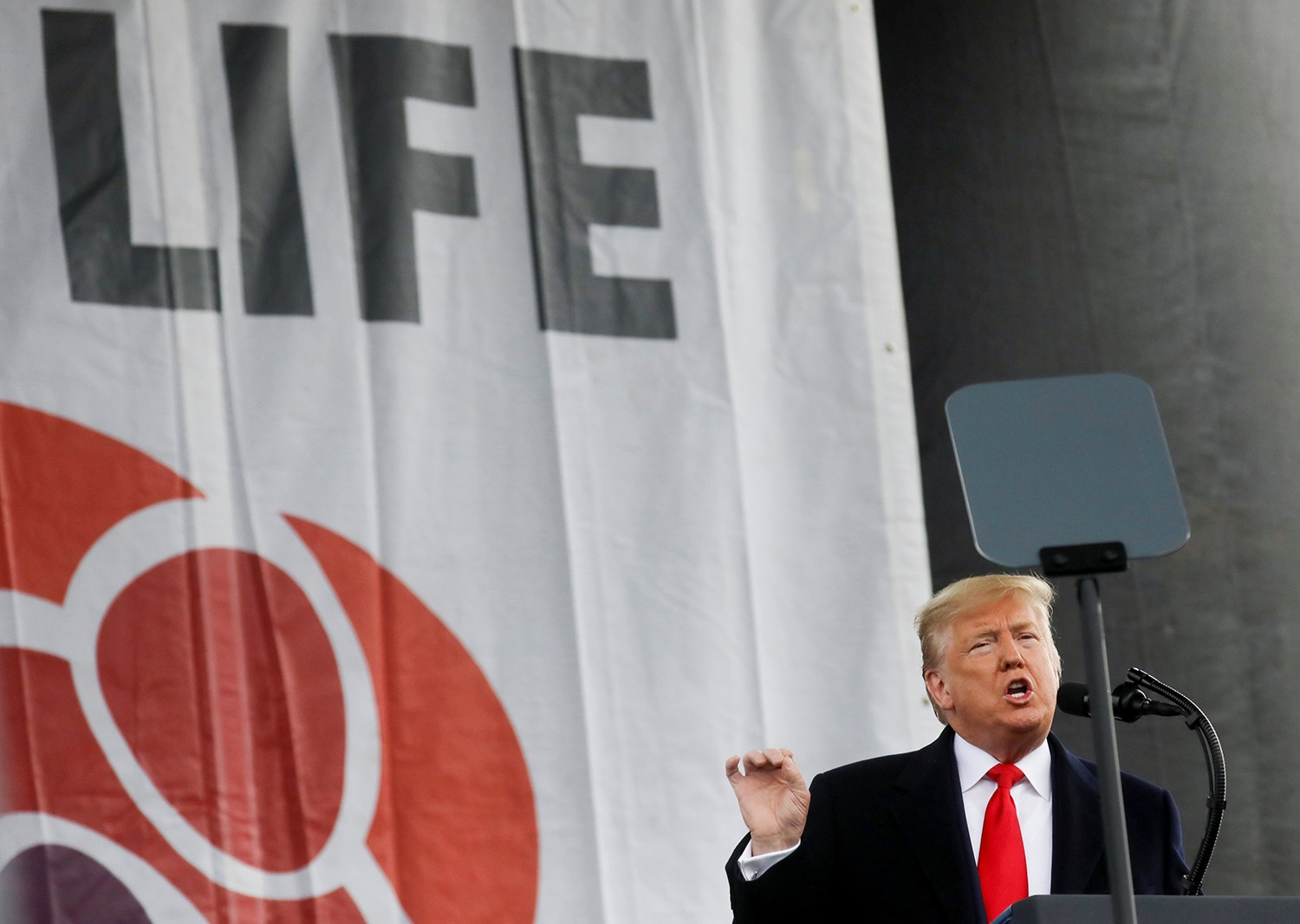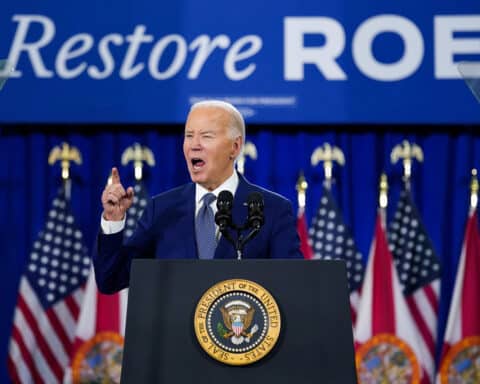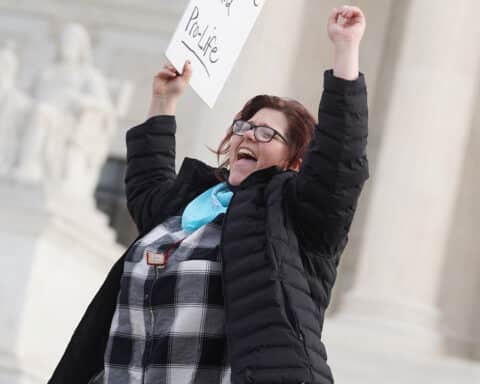WASHINGTON (OSV News) — Former President Donald Trump has told allies that he likes the idea of a 16-week national abortion ban with exceptions in cases of rape or incest, or a maternal mortality risk, according to The New York Times.
The Times report Feb. 16 said Trump likes the “even” number of the proposal.
“It’s four months,” he reportedly told allies.
Trump, who appears poised to secure his party’s nomination for president in 2024, has a sometimes uneasy alliance with pro-life advocates: Many credit him with reversing Roe v. Wade through his appointments to the Supreme Court; but he expressed pro-choice views on abortion prior to his candidacy in 2016.
Trump, abortion and exceptions
The report also said Trump has balked at potential running mates who do not hold moderate views on abortion, calling him “instantly dismissive when he hears that a Republican doesn’t support ‘the three exceptions.'”
A federal 16-week ban would prohibit relatively few of the abortions that occur in the United States — just 4.3% of abortions would be affected, without taking into account exceptions, according to data from the Centers for Disease Control and Prevention.
CDC data from 2020 found that 93.1% of abortions were performed at less than 13 weeks gestation, however, national polling has shown consistently a majority of Americans unwilling to back abortion bans during this first trimester of pregnancy.
At the same time, polls have shown a majority of Americans willing to ban abortion in the second trimester and beyond.
The Trump campaign did not immediately respond to a request for comment from OSV News.
In a statement to The New York Times, Karoline Leavitt, a spokeswoman for Trump, said without confirming his remarks, “As President Trump has stated, he would sit down with both sides and negotiate a deal that everyone will be happy with.”
Leavitt added Trump “appointed strong Constitutionalist federal judges and Supreme Court justices who overturned Roe v. Wade and sent the decision back to the states, which others have tried to do for over 50 years.”
Where are most Americans on the issue?
The group Susan B. Anthony Pro-Life America previously said it would seek for GOP presidential candidates to sign a pledge stating that they will back federal legislation banning abortion at a minimum of 15 weeks of pregnancy. But the group nevertheless praised the report Trump has expressed support for a 16-week ban.
SBA Pro-Life America President Marjorie Dannenfelser said in a statement, “We strongly agree with President Trump on protecting babies from abortion violence at 16 weeks when they feel pain.”
“A majority of Americans support this compassionate position,” Dannenfelser said.
After the Supreme Court’s 2022 Dobbs v. Jackson Women’s Health decision, which overturned the high court’s prior precedent establishing abortion as a constitutional right, voters in California, Kentucky, Michigan, Montana, Vermont, Kansas, and Ohio either rejected new limitations on abortion or expanded legal protections for it.
Some Republicans, including Trump, have sought to blame the issue of abortion for the party’s subsequent underperformance in the 2022 midterm election cycle.
Trump accused pro-life voters of disloyalty to him by not showing up to vote in the midterm elections, saying in a Jan. 1, 2023, Truth Social post they “just plain disappeared, not to be seen again” after the Supreme Court overturned Roe.
But some election analysts argued that while the issue of abortion energized Democratic voters, issues with many of Trump’s handpicked Republican candidates or their campaigns, as well as Trump’s unfounded and oft-repeated claims that the 2020 election was stolen from him, hurt Republicans with voters at the ballot box.
Post-Dobbs legislation
After Dobbs, several states also passed legislation limiting abortion, including Nebraska and North Carolina, which both limited the procedure after 12 weeks. Other states, including South Carolina, did so after six weeks.
While most Americans describe themselves as “pro-choice,” a majority also would support some legal limits on abortion, as well as conscience protections for health care workers who do not wish to participate in those procedures, according to a January Marist Poll sponsored by the Knights of Columbus. That poll has shown for over a decade that Americans broadly support some limits to abortion, even where they would keep the practice generally available.
The Catholic Church opposes abortion, outlining its teaching in the Catechism of the Catholic Church that “Human life must be respected and protected absolutely from the moment of conception”; because abortion takes the life of an already conceived child, it is “gravely contrary to the moral law.”
At the same time, Catholic leaders have called for policies and actions to support women and families facing unplanned pregnancies based on that position.





